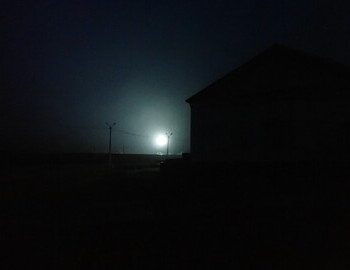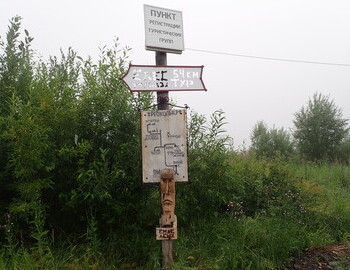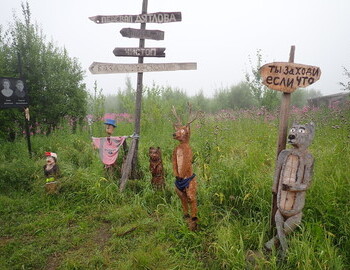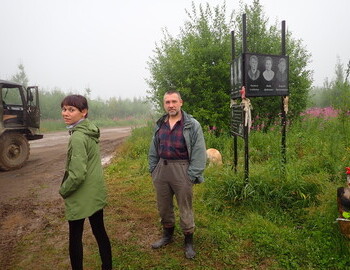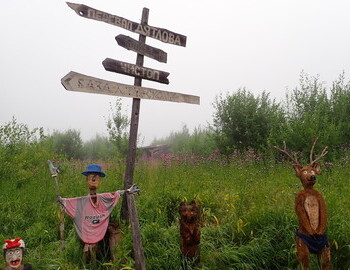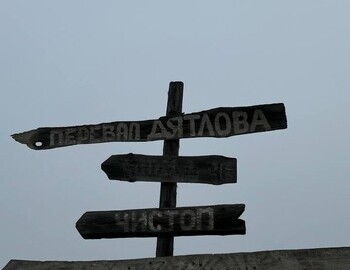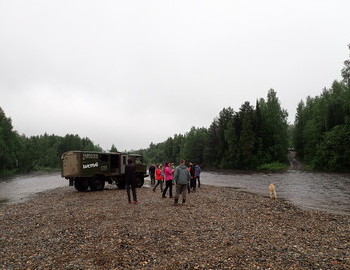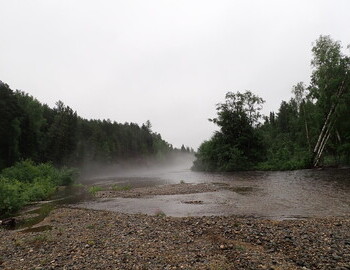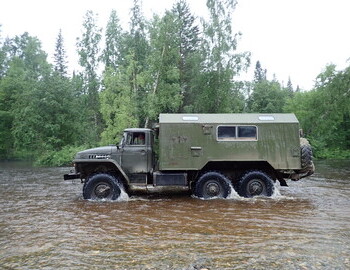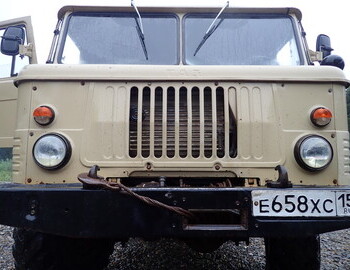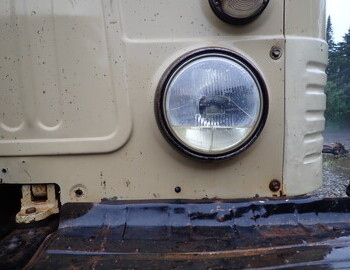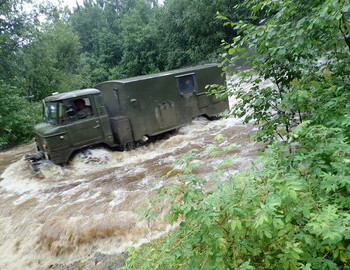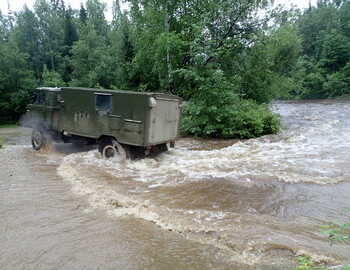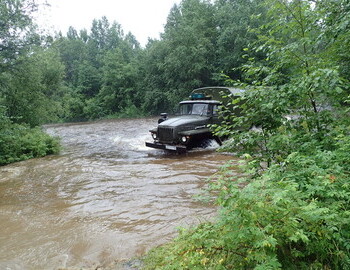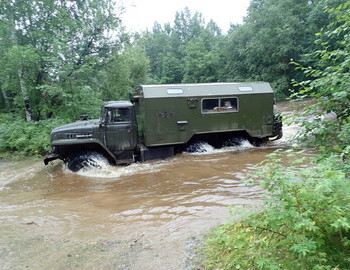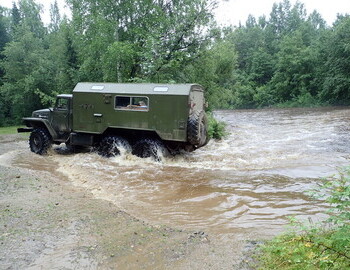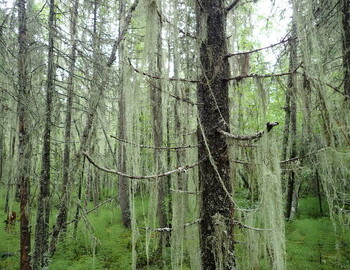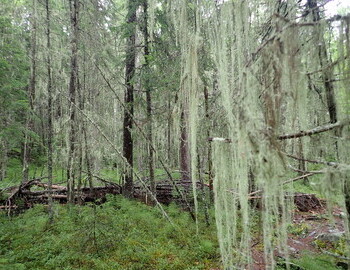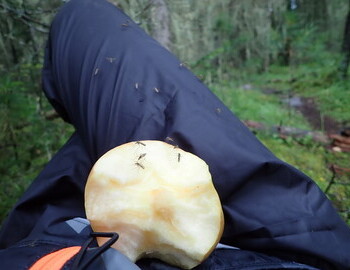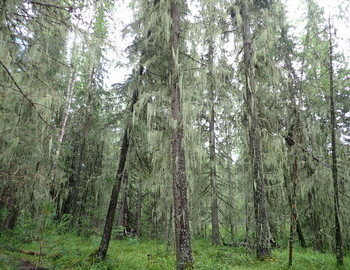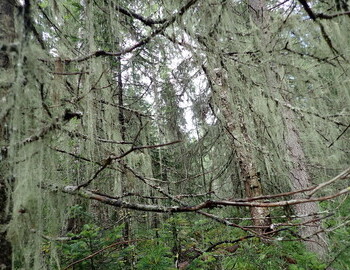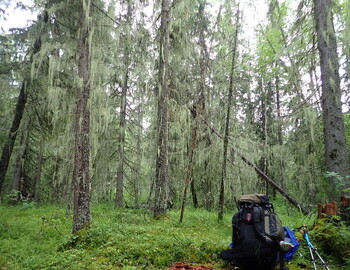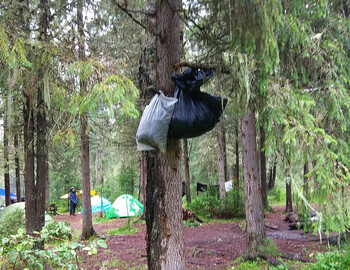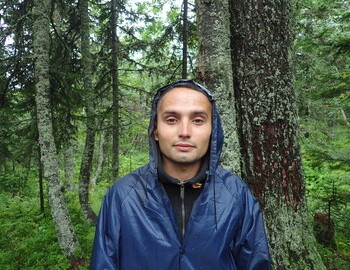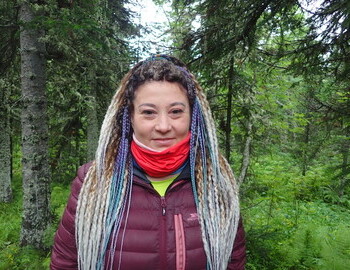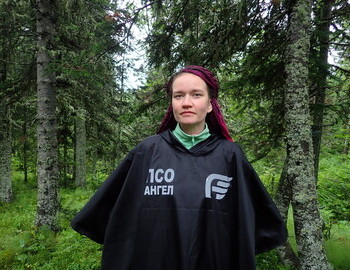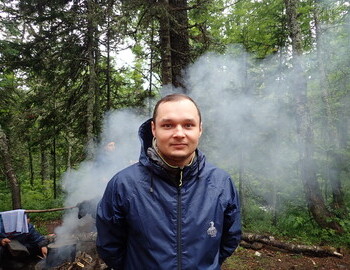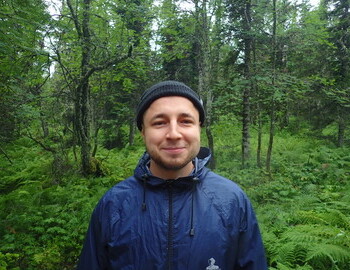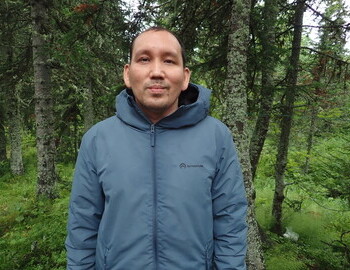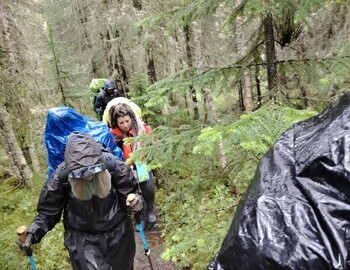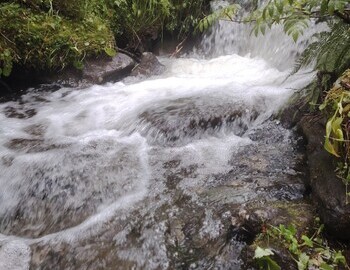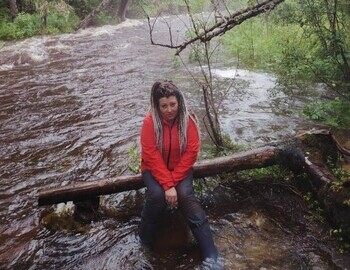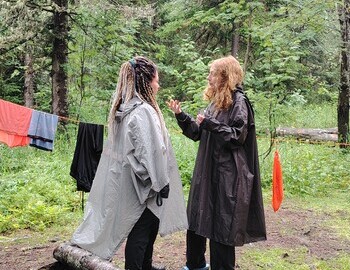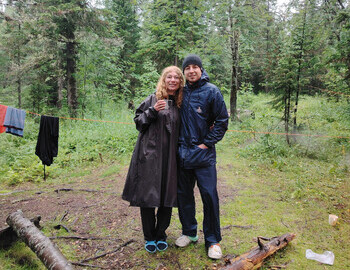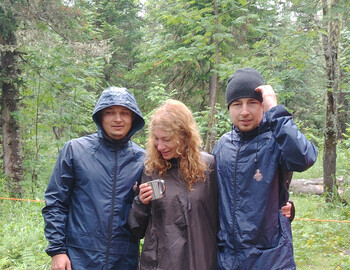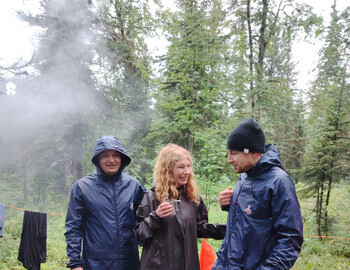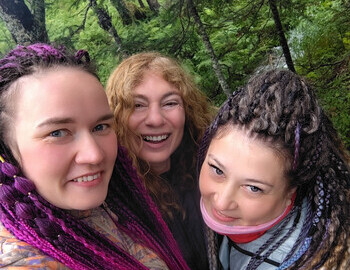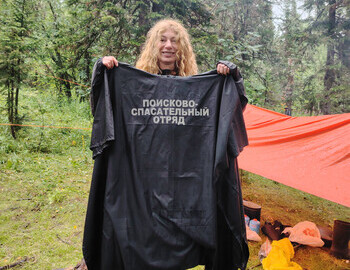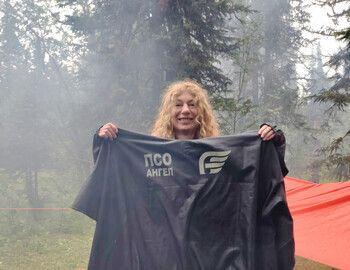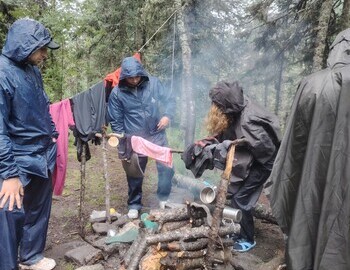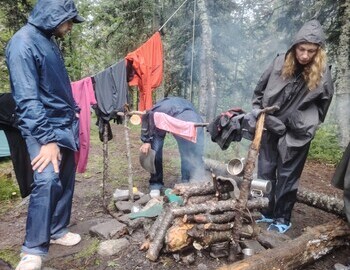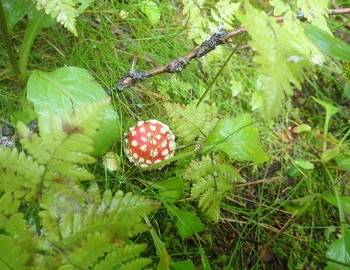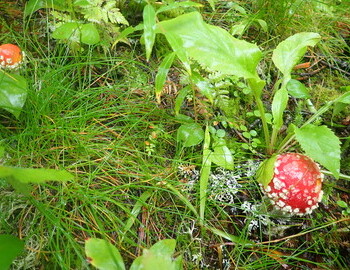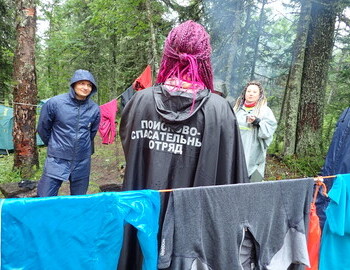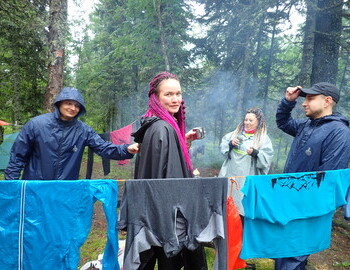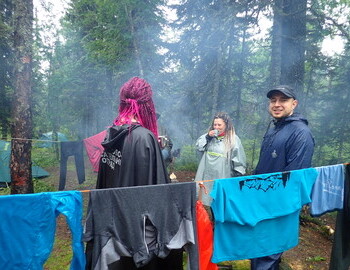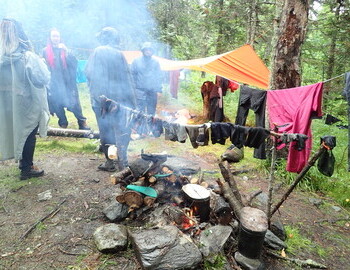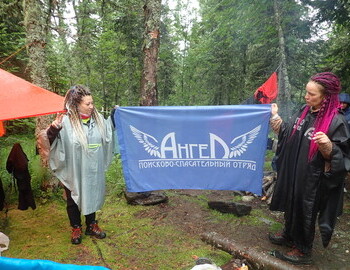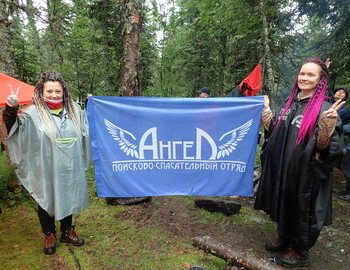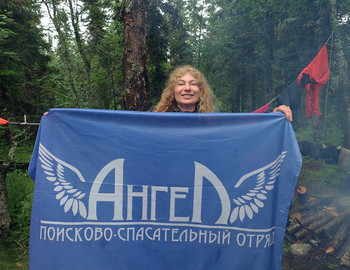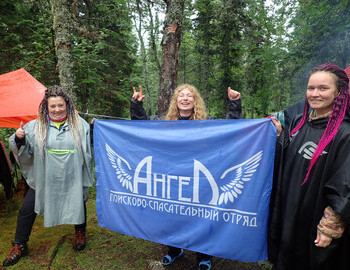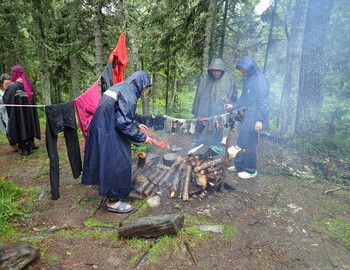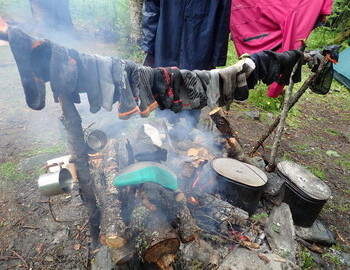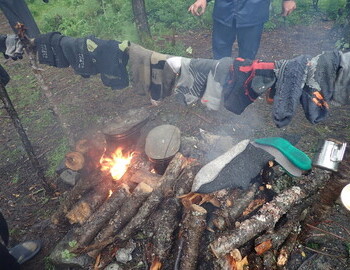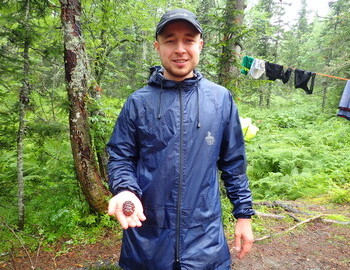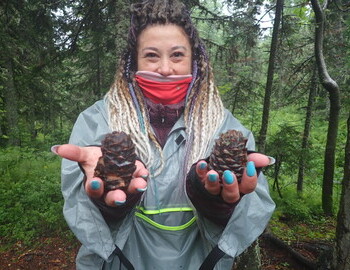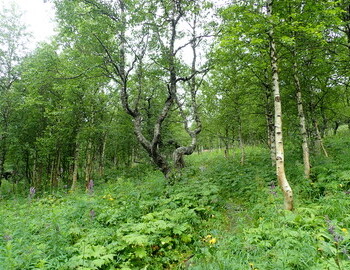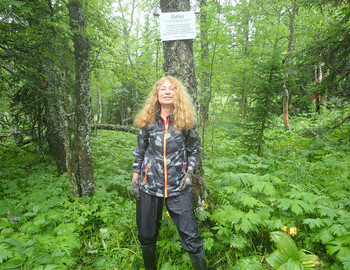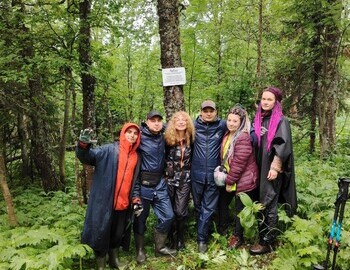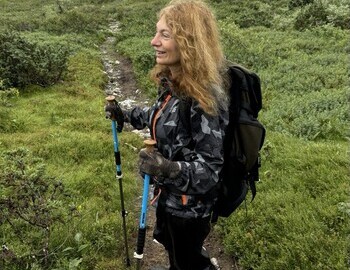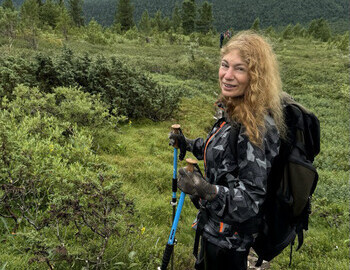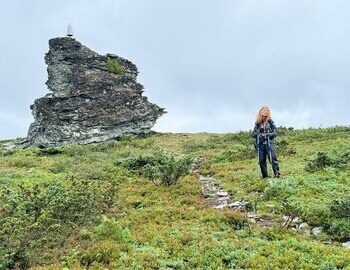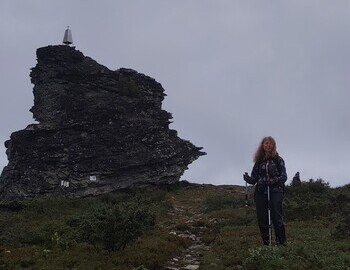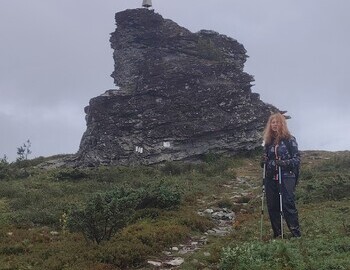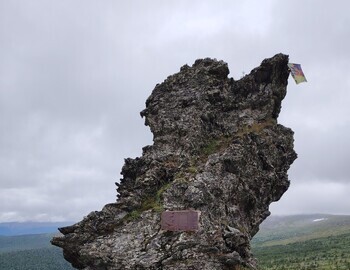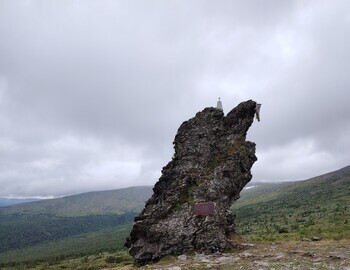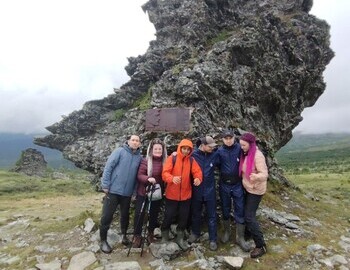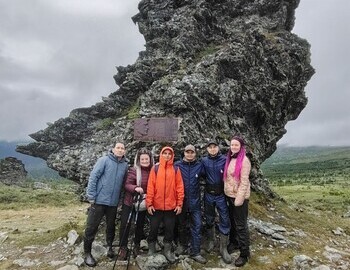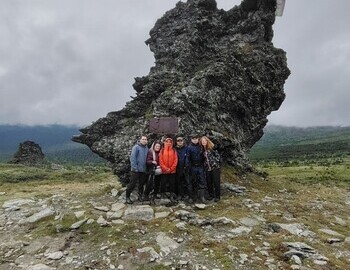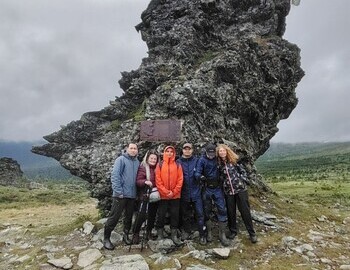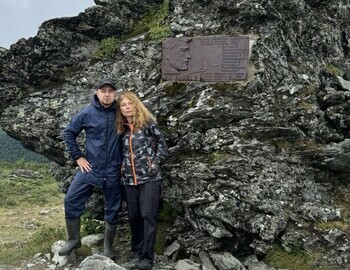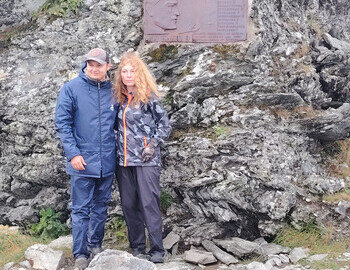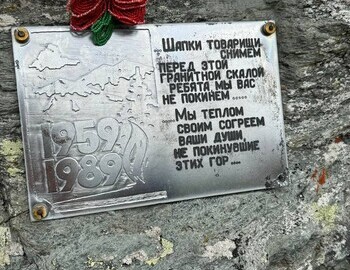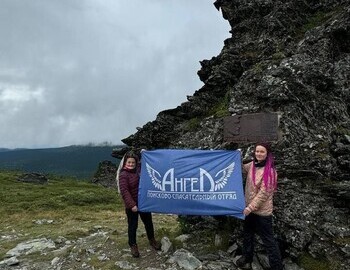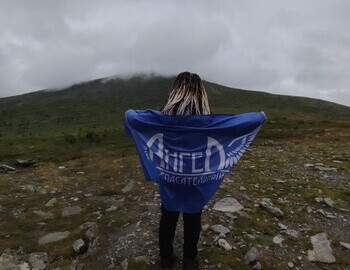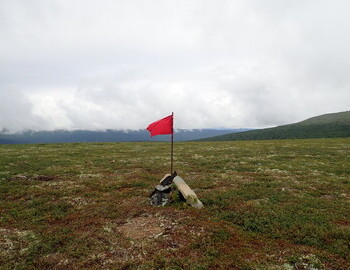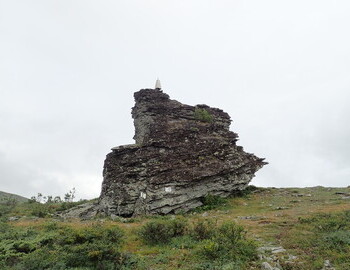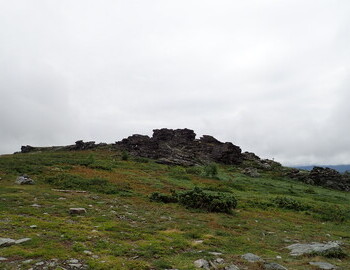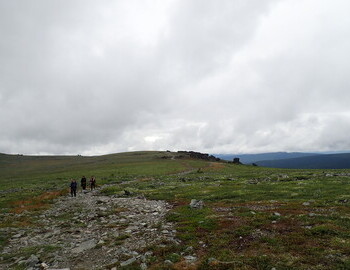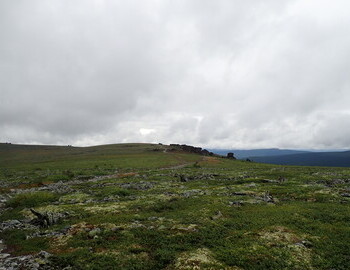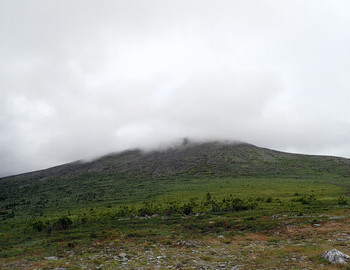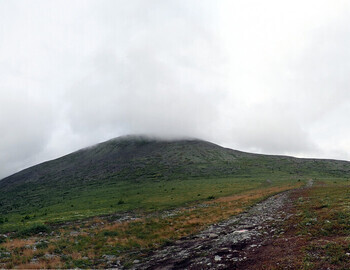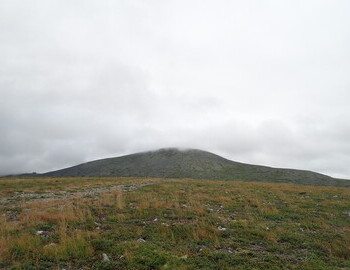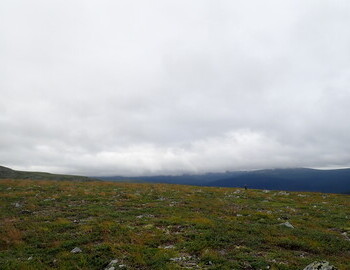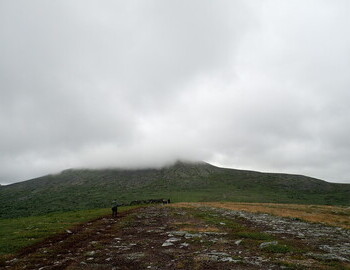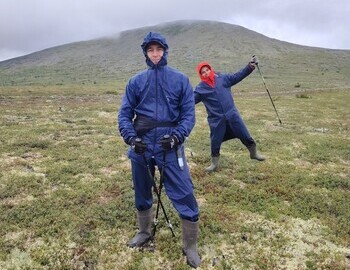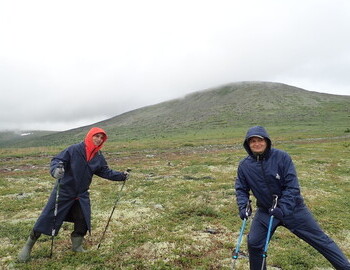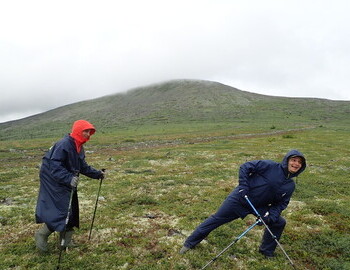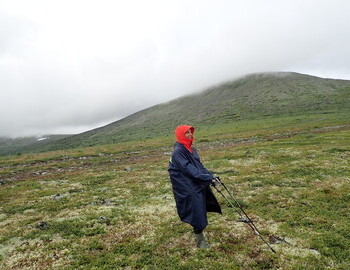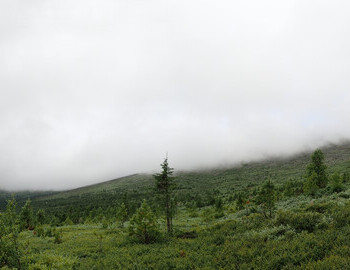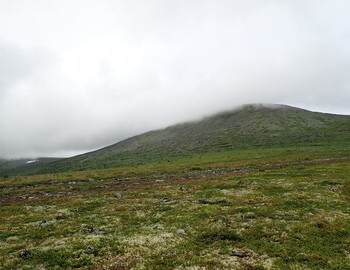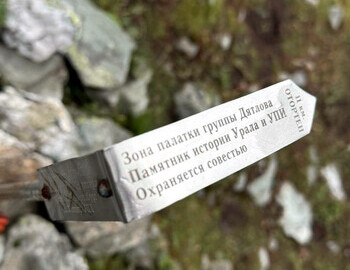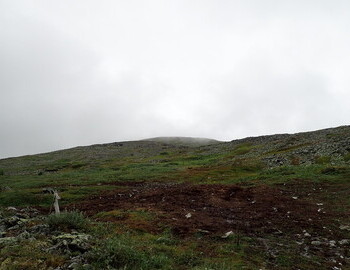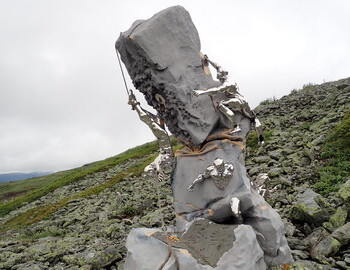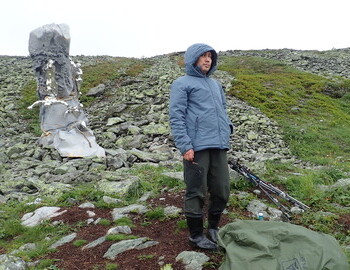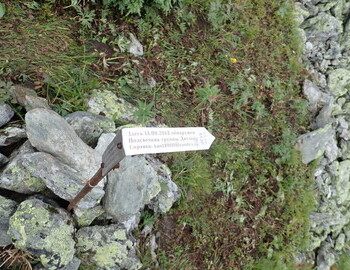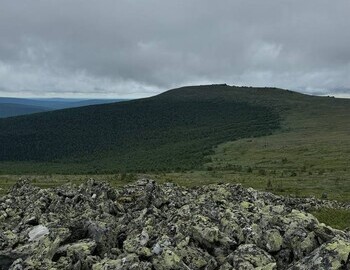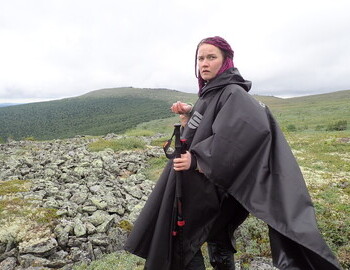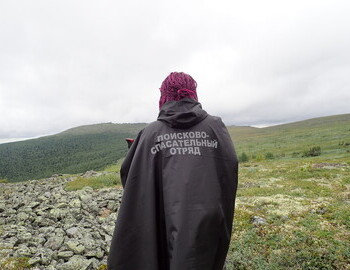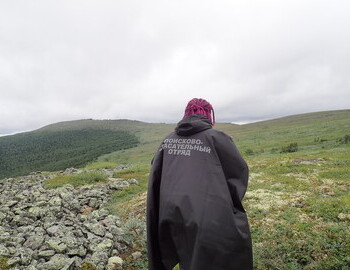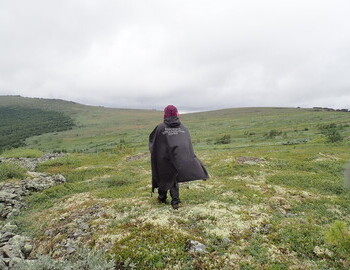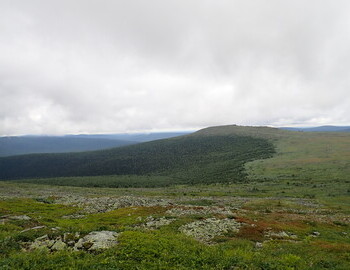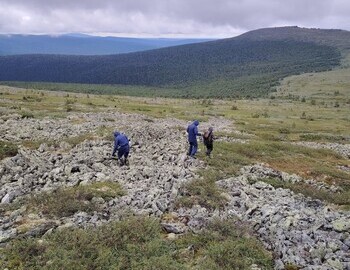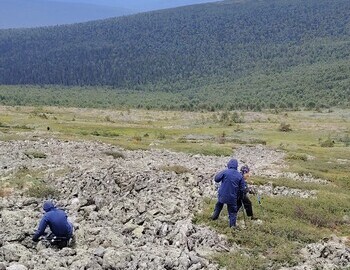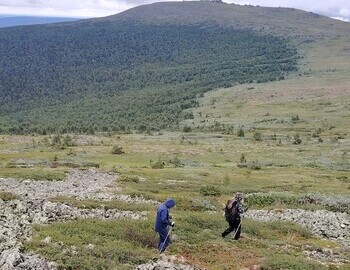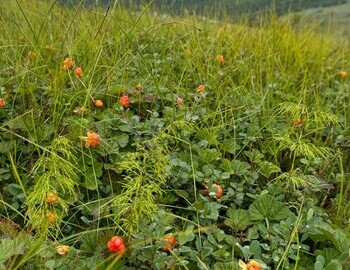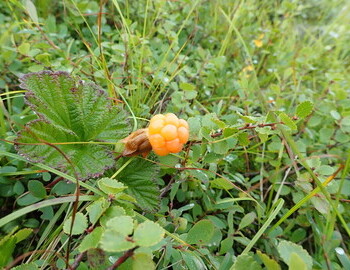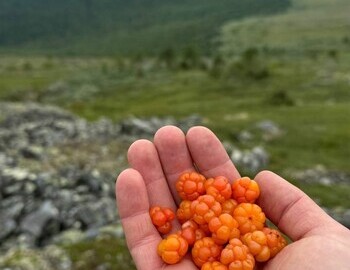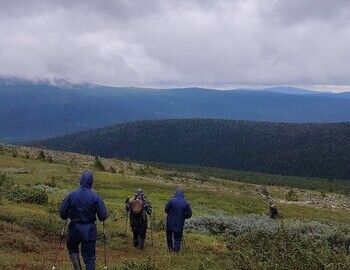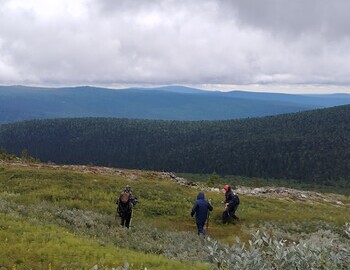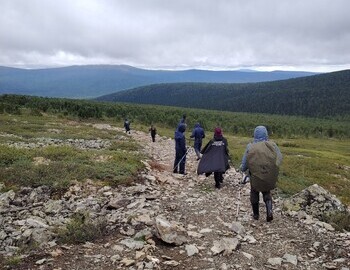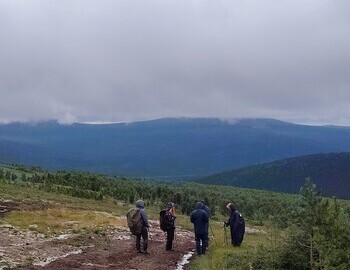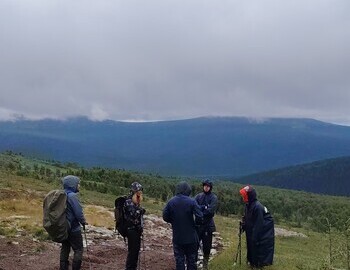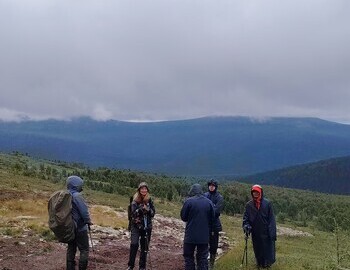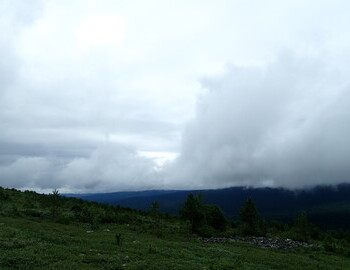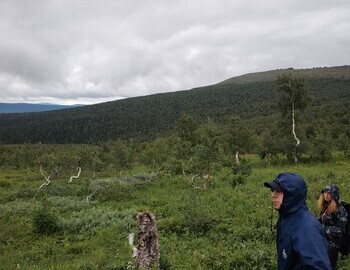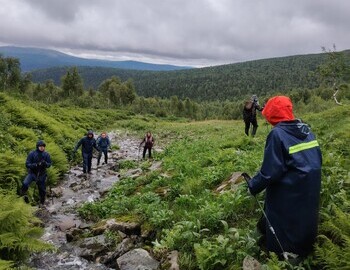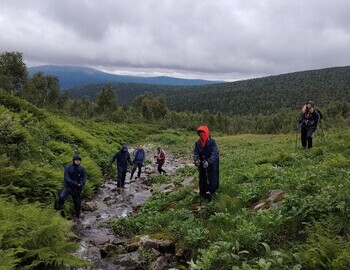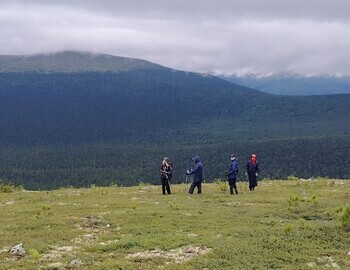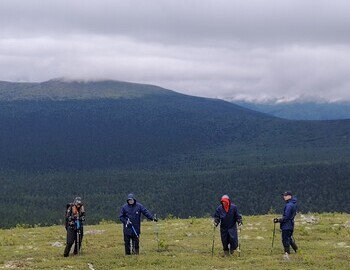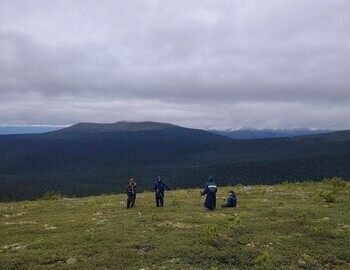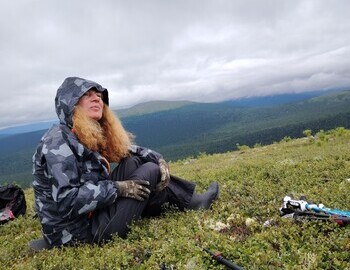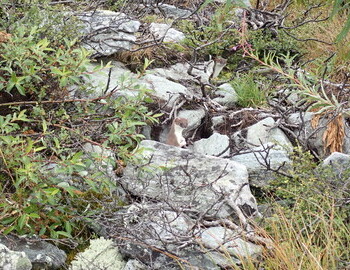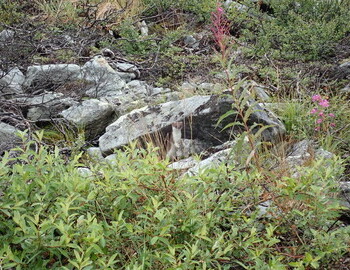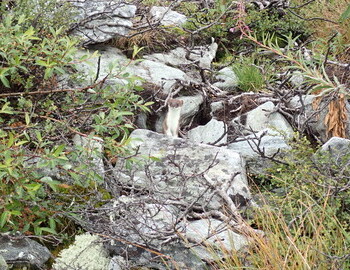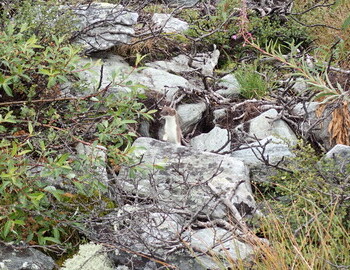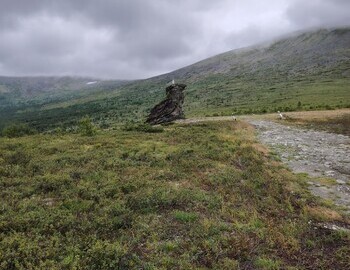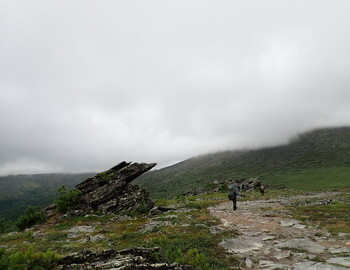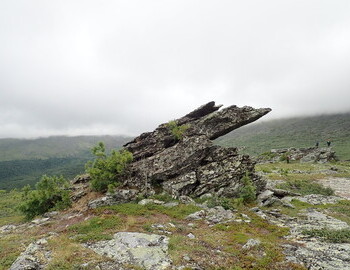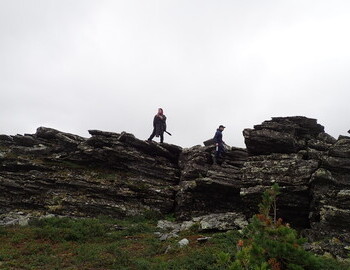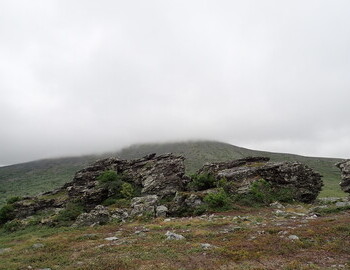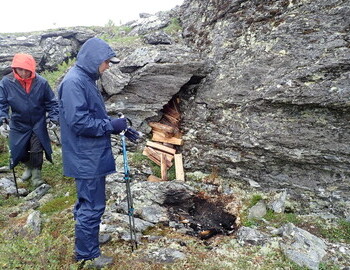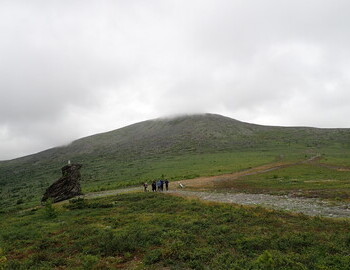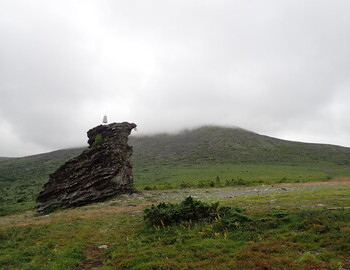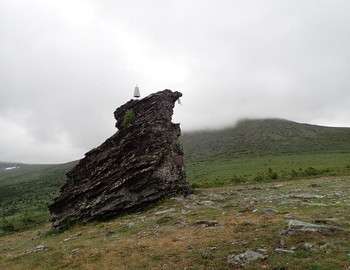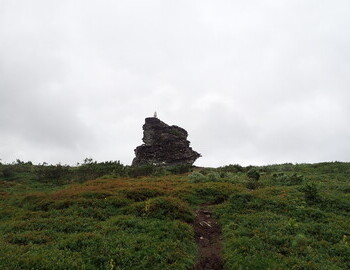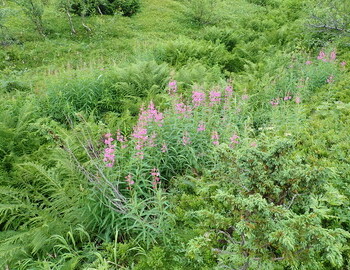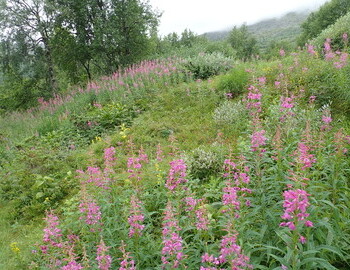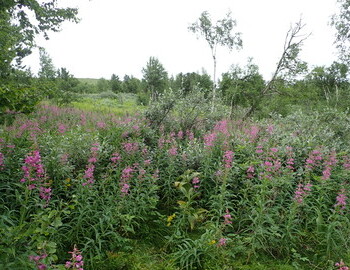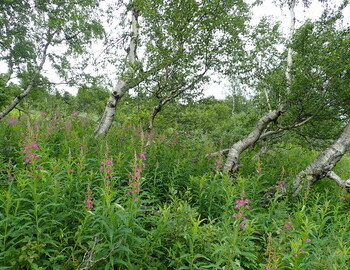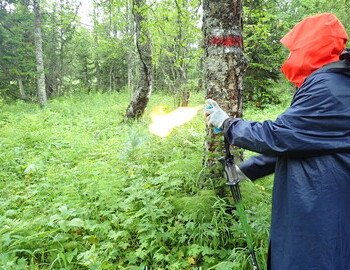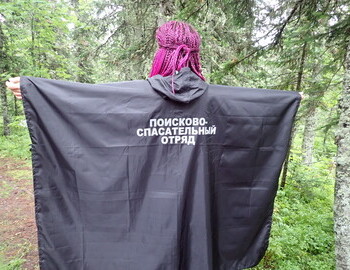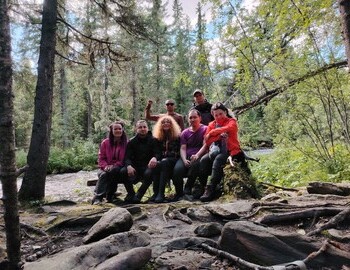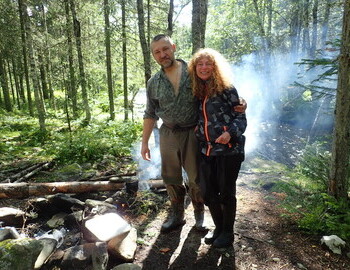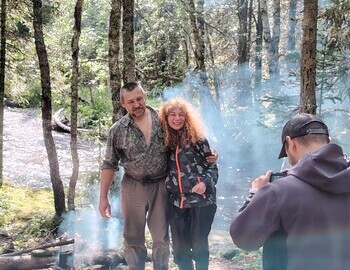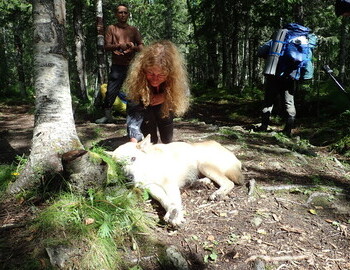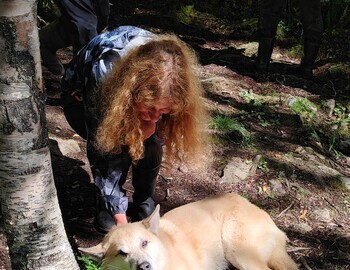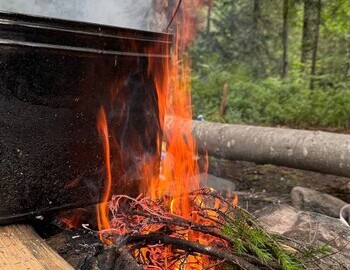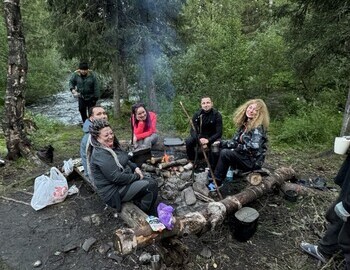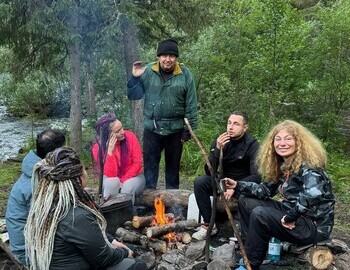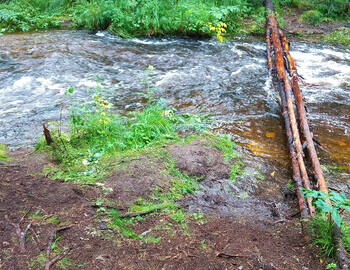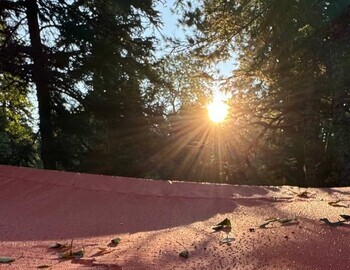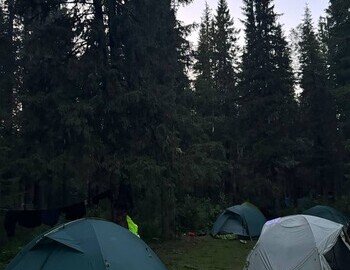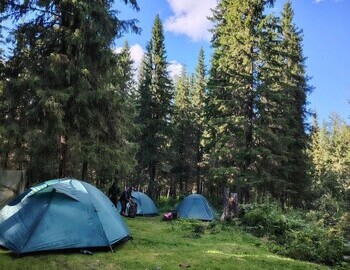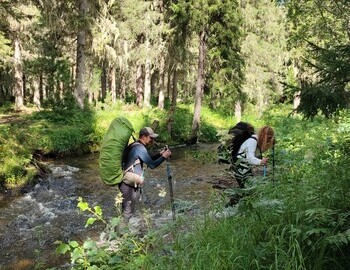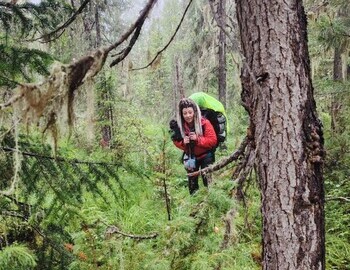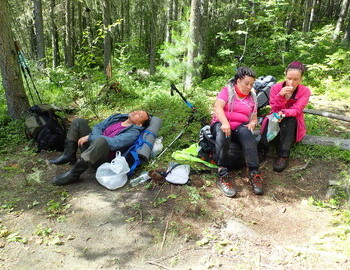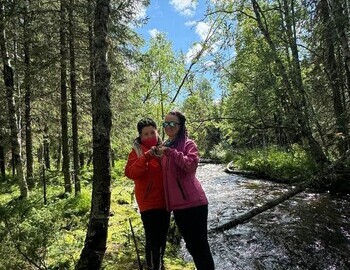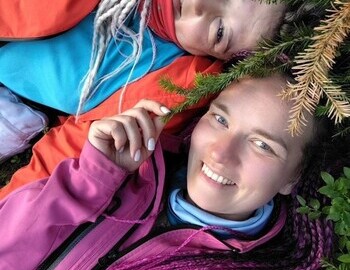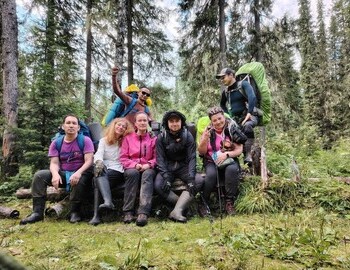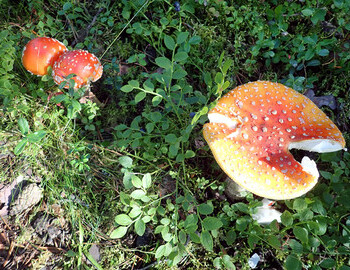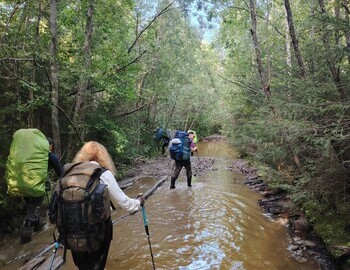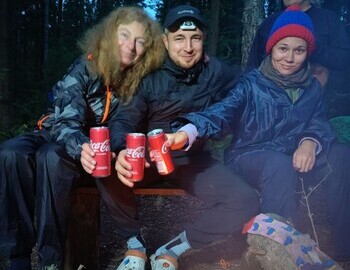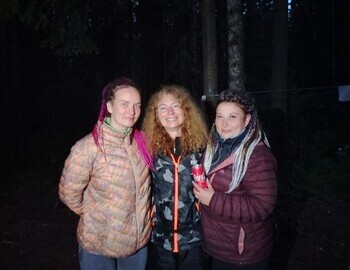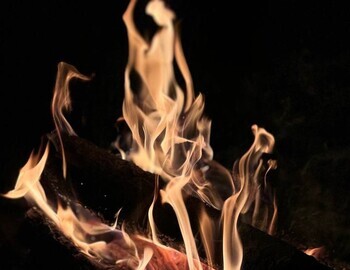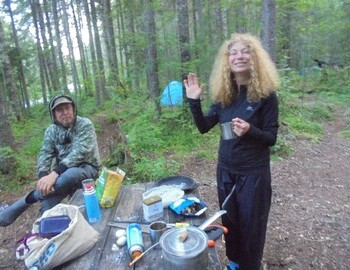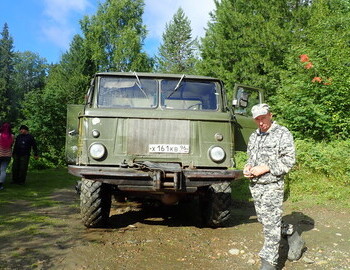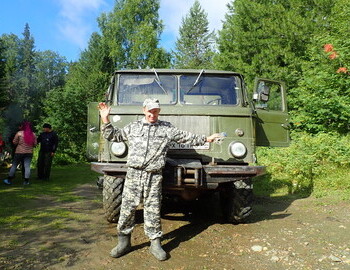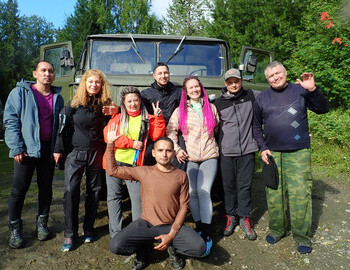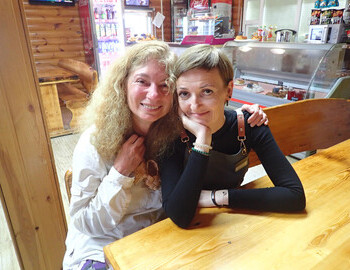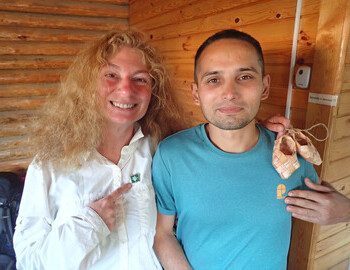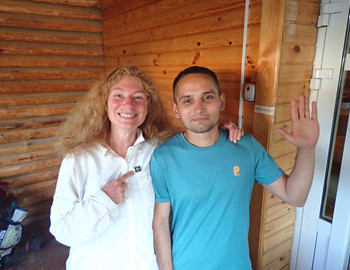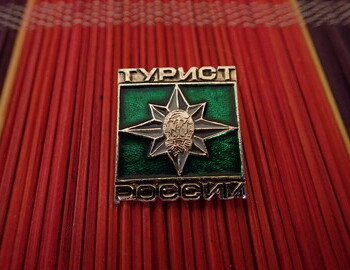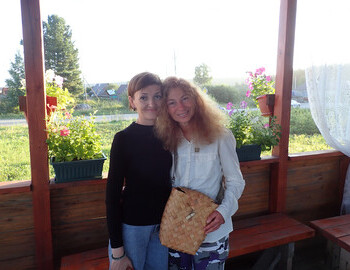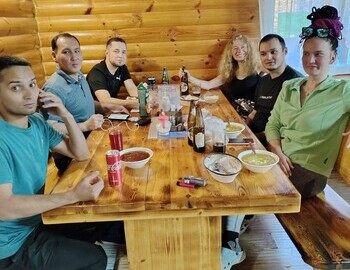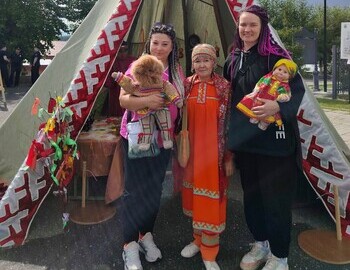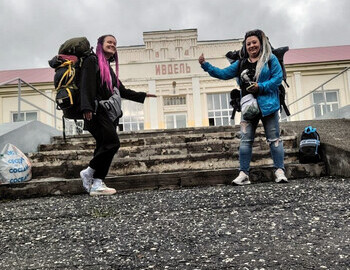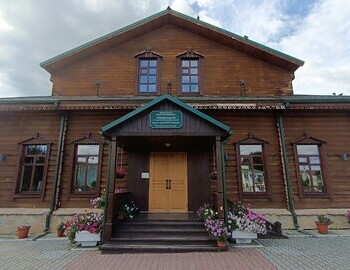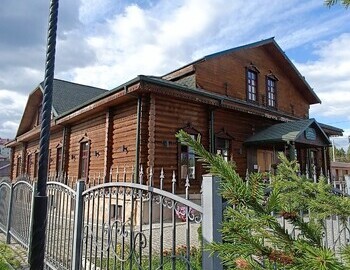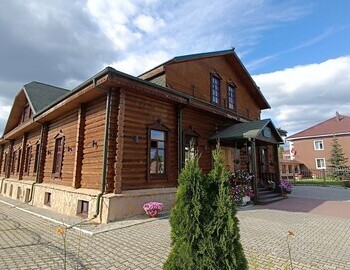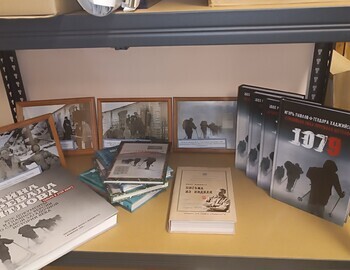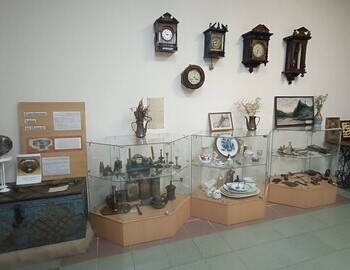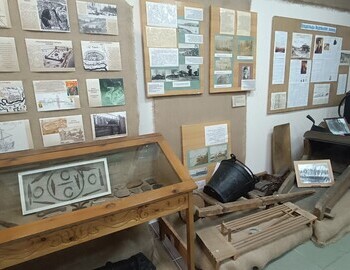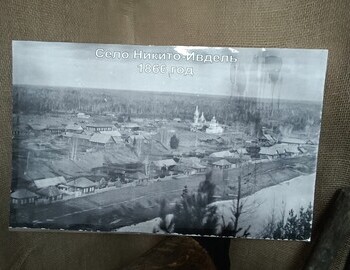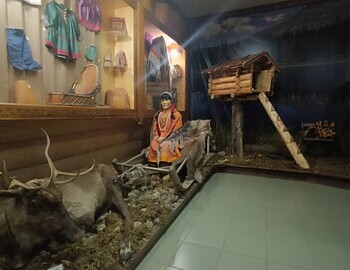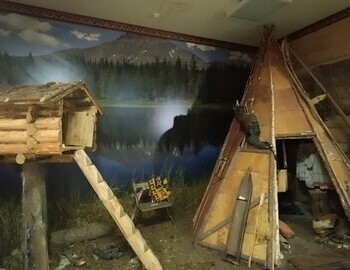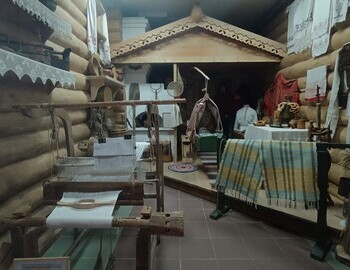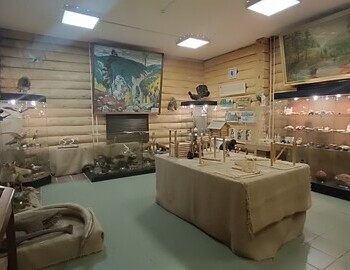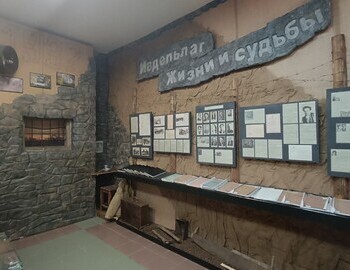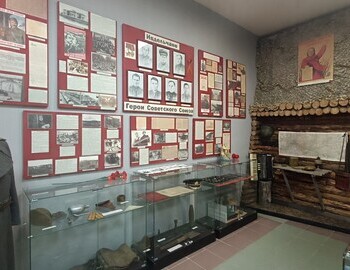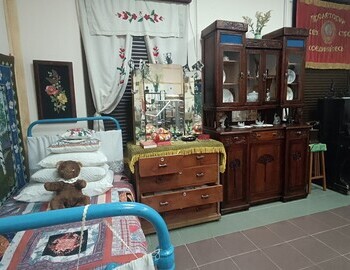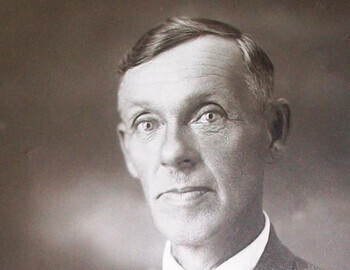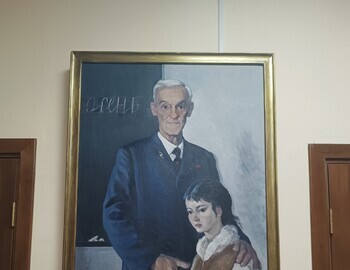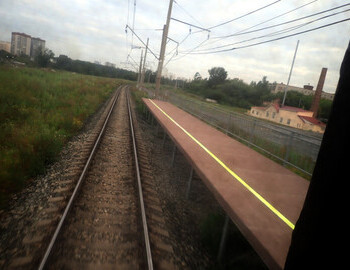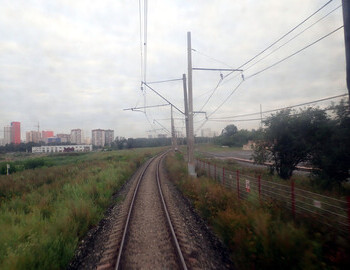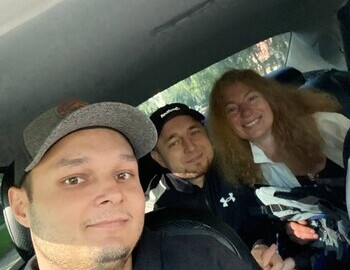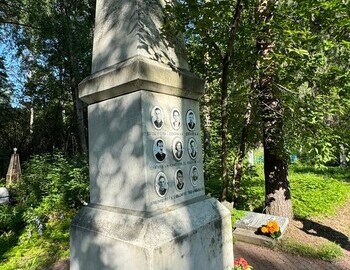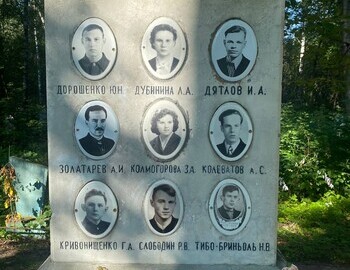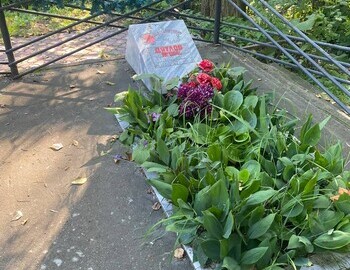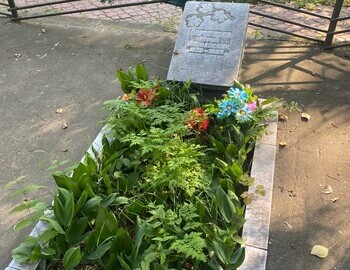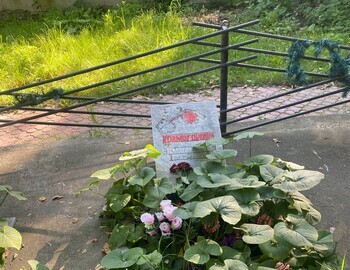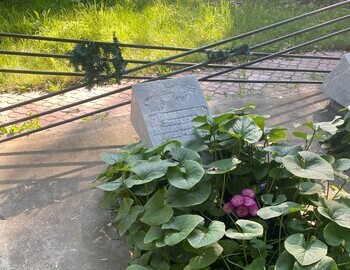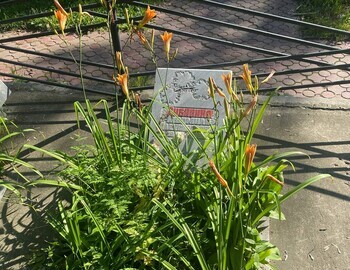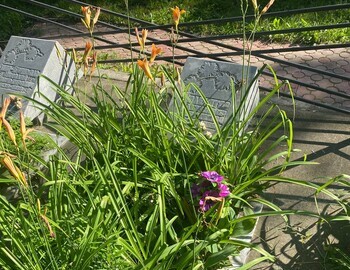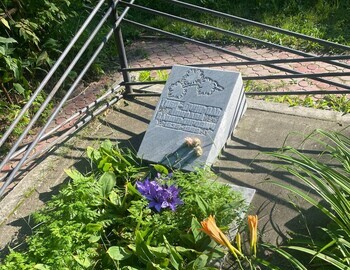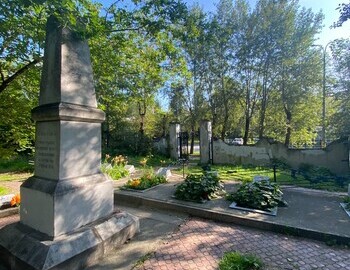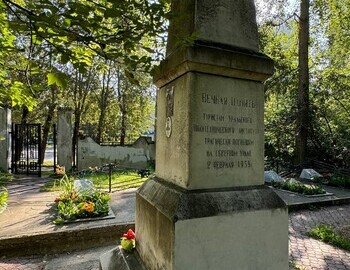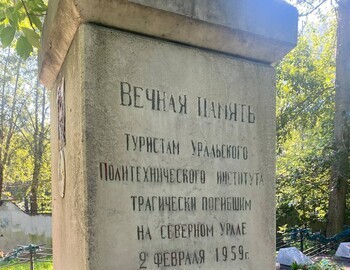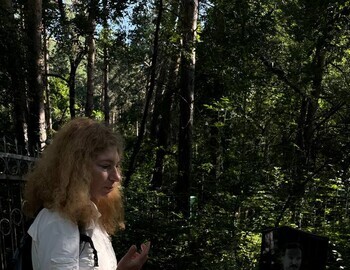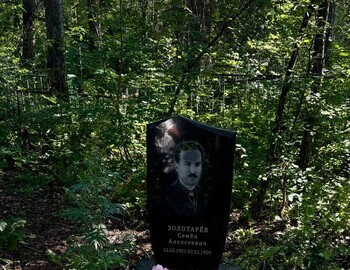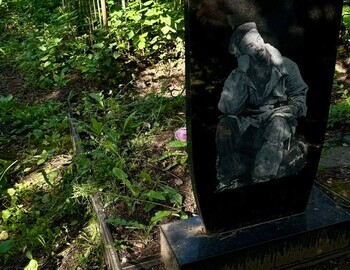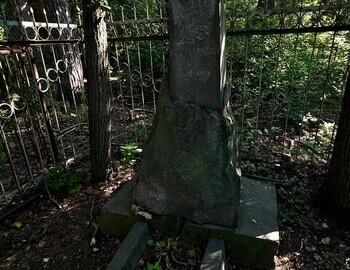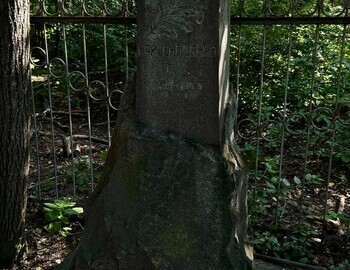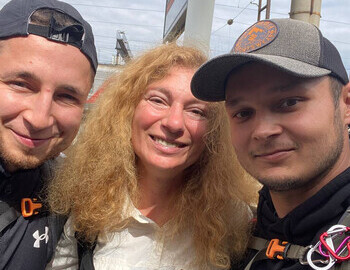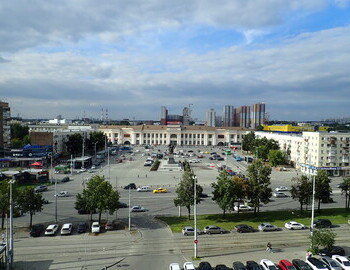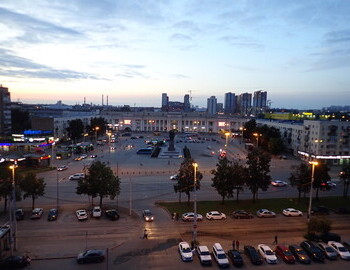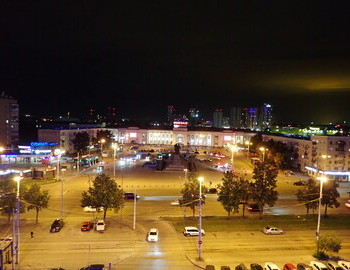
Expedition 2024
I have been processing for a long time what happened on the Dyatlov Pass journey this year. Мy feelings and impressions still vacillate between despair and humility. And yet, as a true mountaineer, I can't wait to go again. This year nothing went according to plan. The important thing is how you react when things don't go your way. Do you adapt and make the best of the situation, try to see what opportunities remain at hand, or do you sulk and blame the universe for not meeting your expectations?
I will rip the bandage off by publishing one day's events of the 2024 expedition in the first week of October. Let's analyze together when you have all of the information as to how it went down.
Last year I forgot my rubber boots in the enhanced Soviet All-Road Military truck GAZ-66 called "Bistriy Gaz" owned by Dmitry Pushin. I was reunited with my must-have footwear in the Ivdel train station parking lot at 3 am August 4, 2024.
The unsupported part of this trek started at Auspiya campsite, which we reached at 9 am. By the end of the day, I could no longer mount my 23 kg backpack. My group essentially fell apart. I had to wait for passing parties to help me lift my backpack. They all included me in their composition, but I was slower, trailing behind, and then had to stop altogether to rest. Someone from each group kindly came to check on me, but I refused to cast responsibility and said I was waiting for someone from my group.
Shamil was supposed to keep me company, but he was always ahead. When I complained, he gave me his hiking poles and remained behind to make himself a walking stick from a branch. When I went back for him he said that he fell and hurt his foot. He told me to keep going, and that he would catch up. I didn't see him at all that day. He spent the night on the trail without reaching the first campsite. I was left alone. There were no more groups. I left the backpack and went to the campsite for help. Sergey Ipatov from my group came and helped me with my backpack. Auspiya river was swollen from the constant rain and it was dangerous to cross it on the slippery logs that were cast across. The river is 20-30m wide. It was raining all day long.
I had to pitch my tent while it was pouring. No one managed to start a fire that night. I was exhausted and feeling despondent. I didn't see a way to continue with this heavy backpack, and tomorrow the wet tent would add to the weight. I was angry with my group for leaving me behind, and worried about Shamil, who didn't even make it to the camp. My tent and sleeping bag were fully drenched. When I finally dozed off a noisy group started settling next to me at 9 pm. They were shouting in a language I couldn't make out, to me it sounded like Polish. At some point I even unzipped my tent and shouted to keep it down and that it was late. Little did I know that these most annoying sounds were the fluttering of my guardian angel's wings.
I woke up at 7 am with my butt in a pool of water. Physically I was feeling stronger, so instead of whining like a little baby, I did the mature thing and rolled out to make myself coffee.
Everyone who had helped me the previous day was inquiring about my plans and feelings. But they were all ready to go, I was not. Everyone from my group was still asleep. The only people that offered me coffee and hot breakfast were the noisy neighbors. They turned out to be the same people we came in the "zabroska", the GAZ-66 military truck. Coincidentally, were going to Otorten on the same days as in my original plan. They made it so late last night because they had a problematic member in their midst, who was throwing tantrums and had to wait for him in the rain. This group was led by a professional guide, and the two men and two women were friends. Alibek chose the route because Otorten was not such a high mountain and he thought it was going to be easy. This was his first camping in a tent, which he bought especially for this trip. He didn't know what to do, when it came to the tent or the mountain in general.
I approached the leader, Ayrat, asking if I could join the group. The succinct answer was only if I can keep up with them. After yesterday he thought this is the worst that we would face. I gave him fair warning that my main problem is that I can easily get lost. He understood. This is how these brave people took me under their wing (pun intended).
I began frantically throwing food away and separating my load so I could leave some in this camp. It is called "zakladka", you stuff supplies and equipment into heavy-duty plastic bags and hang them on trees. From the food, I took only delicacies like Camembert, Bri, raisins, walnuts, protein bars, coffee, and powdered milk. I left behind tea, oatmeal, porridge, and salami.
For the water, I carry a filter so I didn't need to depend on boiled water "kipitok". This was my only smart move. I always carry this filter with me, but this year the discoloration of the water made it not suitable for direct consumption, even for the seasoned Russian hikers. You have to boil it. Alibek drank the water directly from the river and didn't shit himself right away, so I guess it wasn't that bad. But, he began moaning all day long. We joked that it was the "Dyatlov Pass" soundtrack! Ayrat, the leader, and the rest of the members of the group were trying different tactics each day to motivate Alibek to not give in to self-pity. When you do, you tend to fall just to prove to yourself and others how miserable you are.
That day I was walking on air. I began to think that I might reach Otorten after all. My dreams, however, were short-lived.
To have a shot at Otorten we needed to go over the Dyatlov Pass today and camp on the north side in a campsite called "Yeti". Everyone was so tired that when the group reached campsite "Cedar" on the south side of the Dyatlov Pass, going over the pass was out of the question. We basically repeated the Dyatlov group route. Back in 1959 they tried to go over the pass but the weather and the heavy backpacks made them turn around. We spent the night very close, 100 m from where Igor Dyatlov wrote on January 31, 1959:
"Weather today is a bit worse – wind (west), snowing (probably from the pines), since the sky is perfectly clear.
Started relatively early (around 10 am). Got back on the Mansi trail. (Up to now we are following a Mansi trail on which not so long passed a hunter with deer.
Yesterday it seems we stumbled upon his resting stop. Deer didn't go any further. The hunter took the beaten trail by himself, we are following in his steps
Had a surprisingly good overnight, the air is warm and dry, though it’s -18°C to -24°C. Walking is especially hard today. We can't see the trail, have to grope our way through at times. Can’t do more than 1.5-2 km (1 mile) per hour
Trying out new ways to clear the path. The first in line drops his backpack, skis forward for five minutes, comes back for a 10-15 minute break, then catches up with the group. That’s one way to keep laying ski tracks non-stop. Hard on the second hiker though, who has to follow the new trail with full gear on his back. We gradually leave the Auspiya valley, it’s upwards all the way but goes rather smoothly. Thin birch grove replaces firs. The end of the forest is getting closer. Wind is western, warm, piercing, with speed like the draft from airplanes at take-off. Firn, open spaces. I can't even think of setting up a labaz here. It's nearly 4. Have to start looking for a place to pitch the tent. We go south in the Auspiya valley. Seems this place has the deepest snow. Wind is not strong, snow 1.2-2 m (3-4 ft) deep. We’re exhausted, but start setting up for the night. Firewood is scarce, mostly damp firs. We build the campfire on the logs, too tired to dig a fire pit. Dinner’s in the tent. Nice and warm. Can’t imagine such comfort on the ridge, with howling wind outside, hundreds of kilometers away from human settlements."
This is the last entry in the Dyatlov group's diary.
That night I said goodby to Otorten and enjoyed the company of my newly found friends.
The groups that made it to campsite "Yeti" on the other side of the Dyatlov Pass didn't go to Otorten either because it was raining. To go to Otorten one has to walk on the exposed ridge for 20 km and go down to camp by the lake, which means carrying a tent.
The groups that were coming back from Manpupuner saw Otorten from afar shrouded in fog and rain. They didn't attempt to ascend due to poor visibility.
Later we learned that that night Shamil almost drowned in an attempt to cross Auspiya on the slippery logs before campsite Kaska. He was strapped to his heavy backpack which the turbulent river dragged downstream. I only saw him on August 8 and he was still recuperating.
1. Weather
2. Terrain (too difficult)
3. Orientation (getting lost)
4. Clothes, equipment
5. Food and water
Can you think of something else? Well this trek added something else to my list.
6. Time (not enough days)
If something goes wrong, you literally need days to wait out the problem. This applies to weather and physical exhaustion. The previous year, both Shura and Oleg got the flu or something similar. This didn't affect the outcome of the expedition because we had two spare days. This year we did not have a single day to spare. In my opinion, we started with an impossible timeline, even if the weather was perfect. The problem is Dyatlov Pass - Otorten. It says 11 km on this sign at the location where the tent was found, but this is only measured in a straight line. To go on the ridge takes 20 km, all the while stepping on stones ("kurumniki") overgrown with slippery moss, making for slow, careful progress. On every step, your foot bends and collapses because the ground is not firm, so you walk on big stones with hidden holes covered with this moss. Even if you make the 20 km, if you have to head back the next day, you won't have time to even take pictures of the sunset, because you need to go down to Lunthusaptur (Goose Nest Lake) to pitch your tent. Otorten is 1182 m high, and the lake is 855 m. Then in the morning, you need to break camp, ascend Otorten, take your moment at the top, and go 20 km back with all the gear. People sleep in the modules. I have talked about them in Part 1. This year more than 10 people were sleeping in a module with 4 cots.
This day I contemplated how I got into this situation. This is is how: Fedotov offered to take me to Otorten in an SUV, help me rent a high-class metal detector, and even drive me from Yekaterinburg to Ivdel. The only thing he was not sure was exactly when the expedition would take place. The range for the date to hit the mountains was from July 27 to August 1. This is how I planned my visa, tickets, and accommodation. When I arrived in Yekaterinburg he bailed out completely. I already had the ticket for the way back, and I was also limited by my visa. Going on an SUV was never a dream of mine, but transporting the metal detector and big tent (I took a big tent to keep the metal detector safe inside) would certainly be easier in an SUV. All my luggage was prepared for a completely different level of expedition. In Yekaterinburg, I faced the dilemma of giving up the trek altogether or making the best of the dicey situation. Maybe worse than not having wheels with the luggage was that our group remained without a leader. When do you reach the critical point to abort an expedition?
So you will understand why I started mumbling about stones and pine cones. I wanted to go to the Dyatlov Pass and gather pine cones. I promised this to my contributors, not that they would hold me accountable, but I didn't want to look like a complete failure. But this year there were scarcely any cedar pine cones and most of them were badly gnawed by rodents. Pine cones from fir trees were abundant, but not from the cedar trees. After getting to know me, the rest of my comrades started bringing me pine cones. I didn't find a single one that day. This will all play a role in my state of mind which got me the next day to an incident that should not have happened. Certainly not two years in a row.
What do you make of the serendipity that two of the members of my foster group happen to be "Angels" from a search and rescue squad in Belarus? The same women shouting last night in the dark, in a language I couldn't understand.
The trail was a virtual river. Although the sky was still heavy with rain, we took our chances since this was our last day before we had to head back to be on time for our "zabroska" to Ivdel. This is what I mean by being to pressed for time. According to the original plan we were to march to Otorten yesterday during the heavy rain and come back today, while it looked like it would rain again. We packed our raincoats and went to the memorial outlier "ostanets" (outlier) aka Boot Rock. 100 m along the trail I pointed out the alleged last campsite of the Dyatlov group. My foster group was very good to me. They fed me, so I tried to return the favor by providing some information about the Dyatlov group. After all, I was the expert. The expert that got lost... again.
I took them to the tent site found in 1959. The modern monument is dilapidating 60m above. The figure plunging head down is already separated from the core monument and the fixture is protruding from his crotch. The guys tried to fix it. Ayrat saw the sign "Cedar 1.5 km →" and decided that we could go down and find it. I warned them that I got lost last year trying to do that. The GPS marks that they had didn't help. This was bittersweet. Bitter because I didn't see The Cedar and sweet because if I am going to investigate the area where the bodies were found, I don't want it to be known to the masses.
So we went back on the ridge and explored more in the direction of height 880. In the swamped areas we found sweet cloudberries "moroshki". They only grow when there is a lot of water and the berries last for 4-5 days. The animals love them, so we were lucky to find so many. The sky stayed foreboding so we went down to the camp before it started raining again.
Before taking off my rubber boots I decided to look for cedar pine cones once more. Up to that point, I had found none, the only treasures were what Ira and Vlad gave me yesterday. I shouted to Ira that I was going to look for pine cones in the direction of the river. After 5 mins she shouted: "Did you find any pine cones?", I responded "Only humans'.", and then I crossed the river. I kept going from cedar to cedar, there were scarcely any, and the ones I found when I turned them were all bitten by rodents. I walked and walked, finally, the search paid off and I filled my hands with pine cones. Then I saw a clearing that looked the same way as the ones where the searchers camped in 1959. They have distinctive vegetation and many felled trees. I didn't have anything on me, no camera, so I decided to count my steps to the river so I could find it again. I couldn't find the river, so I tried to retrace my steps, found a track in the tall grass, and followed it. It was not a trail but the grass was parted. I walked for a while till I reached a large lair in the grass. The hair on my neck stood up. The previous year I got lost on the northern part of the Dyatlov Pass and crossed paths with a mama bear. I didn't have a whistle, flashlight, or any kind of equipment on me, not even toilet paper, not that dignity matters when a bear starts chasing you. It was a Deja vu. I started shouting to warn the bear, I knew my group wouldn't hear me. Cries are not heard in the taiga. I found this out last year. A whistle is recommended to warn the bear so you don't startle the beast. But I didn't have a whistle on me, it was in the tent and I was lost. I didn't even have a watch. I desperately tried to find my way for a good 2 hours. I crossed several rivers, and I realized that I had no idea where the camp was. In addition to the bears, I was devastated to cause drama to such a helpful group. I knew Ayrat had a satellite phone, and the girls were search-and-rescue, so I knew they would start looking for me. The day was going fast. I couldn't find my way in the daylight and wondered what would happen when it got dark? I knew Ayrat would have to decide to call for help before the end of the day. On top of everything I am a foreigner, and this will complicate the matter and attract unnecessary attention.
There is a saying that God will put you in the same situation until you learn your lesson. Even if I had a compass, even if it worked in Ural where there is a magnetic anomaly, it wouldn't have made an iota of difference. I knew where North and South were, and the whole time, same as the previous year, I had a clear view of the ridge with Kholat Syakhl. What I didn't know was how to find the exact location of the camp and I was running in circles like a headless chicken bumping into bears. Shouting did not help, no one heard me. This is how the taiga works. You can start a fire and the smoke will show your location, but I was never good at starting a fire. And this only works if your searches climb on the ridge and look for your smoke. This is the plan that my group was considering last year. After realizing that I was running out of daylight I went straight for the ridge. On the trail, it takes 1 hour, but I was going without a trail through the taiga, and then the stones covered with moss "kurumniki". All day long hiking in rubber garden boots, holding pine cones in my fists as if my life depended on it.
It took me one hour to see exactly where I was going to climb the ridge, indicative of where I was in the forest, the snowdrift that never melts. Good thing I knew the ridge. This means I have passed the line of the camp and went way further to the West. It was harder and slower to traverse in the forest. Also if someone started looking for me I had better chances to be spotted while on the bare ridge. After all, the mountain is called Death Mountain (Kholat Syakhl) not because people die there but because it is bare.
Soon, I experienced the most magical moment alone on the top of Kholat Syakhl. On the slope, between the "kurumniki" I saw a big stone in the shape of a heart, not a single strand of moss on it. Then, suddenly, the clouds cleared up, and an amazing sunset painted the sky. There I was running in my rubber boots, my fingers stiff from squeezing the cones, not a single soul visible to where the eyes meet the horizon, and knew right there and then that everything would be alright. Not just that day, but in general. This is the closest I have been to receiving the biblical "manna from heaven". This is a feeling that does not relate to the events before me in particular, but something in general. Every time I go to the Dyatlov Pass I feel in awe of the enormity of the scenario that we are not in control of. I feel at the precipice of the world, a spec in the enormous universe, and for the first time, I felt exaltation from the fact I am part of this same universe.
My head was in the clouds, but my feet knew better and I ran towards the camp. I knew the way, the sky above was beautiful and perfect.
At the camp when my people saw me they lined up in silence and everyone took their turn to hug me and say how happy they are that I made it back. Everyone but Ayrat. He kept at a distance not facing me. When I went to apologize and tried to explain, he only said "I condemn" ("Осуждаю!"). It took him some time to forgive me.
The sun finally decided to show itself after we folded the wet tents and crossed the swamps on our way back. This was a signal for Aleksey Vasyov, who waited out the rain in Kaska, to start his trek. We met him and his dog Ural on the trail around noon. After Otorten he would locate his boat that he tied somewhere and continue on the Bolshaya Sosva River. He had never been to Ural Mountain for less than a month. He scarcely carried any food for himself (coffee was a must have) because he fished. He said that all the food in his backpack was for the dog. He also said that this might be the last trek for the old dog.
In Kaska campsite we saw Shamil, he was in bad shape, but alive after the "bath" as he called his near drowning. Shamil also planned to stay on Otorten more than I did. It was obvious from the moment Fedotov delayed our expedition that I would not make it to Otorten. I could not change my ticket to Sevastopol where I was meeting with Askinadzi, and there were no more tickets for the train to Crimea within the time frame of my visa. Shamil hurt his foot, then fell into the river, so he felt there were enough signs from above not to attempt Otorten this year.
In the end, we were all good. Everyone got what he deserved. I had my private rendezvous on Kholat Syakhl, and the most valuable thing I brought back from the Dyatlov Pass this year were my new friends.
We keep falling into swamps and the boots get full of mud.
We are finishing with perfect weather. Today's trek is from the Kaska campsite to Auspiya river (14 km), where we will spend the night, and Dmitry Pushin will arrive with the next batch of hikers from Ivdel and take us back. The estimated arrival time of the "zabroska" is 9-9:30 am. Ira and Lena hid a dozen Coca-Cola to celebrate our return. Lena made the traditional end-of-trek cake, all the remaining cookies and condensed milk "sgushtyonka" were mashed, shaped, submerged in the river in a plastic bag to cool off. As a surprise, Ayrat gave everyone but me a badge "Tourist of Russia", including Alibek who was dubbed 'I'll-be-back'. I felt once again like Lyuda, no piece of tangerine for me. The other references with Lyuda are my broken ribs and my moody character. As soon as we went to bed it started to rain again.
Our "zabroska" was right on time. The sun was shining for the next groups that were luckier than us with the weather.
Crossing Auspiya, you can see Dmitry Pushin in action.
In Ivdel, we stopped at the truck station complex (gas station, restaurant, and motel) and took advantage of the traditional Russian bath (sauna). The manager, Tatyana Fyodorovna, took an interest in our colorful group. When she learned I was a foreigner she brought me a gift, a pair of shoes "lapti" (Mansi) woven from birch bark made by the local Mansi people. Ayrat had a change of heart and awarded me the badge "Tourist of Russia". Tatyana Fyodorovna decided to give me a bag to go with the shoes. The joy of this day was only darkened by the fact we all had to go our separate ways.
Ivdel museum of local lore "Uvarov"
Ilya Trembovetsky, Editor-in-Chief
The museum has 7 halls. The 7th exhibition is currently under renovation. The remaining 6 halls of the permanent exhibition are: 1. Origins of Ivdel, 2. Mansi, 3. Russian izba, 4. Flora and fauna, 5. Military history and Ivdellag (as well as the revolution) 6. Soviet era. The Dyatlov Pass exhibition is displayed in January, closer to the anniversary of the tragedy, and it is now stored in the museum archive.
The museum building dates from 1847. Since then it has been reconstructed many times, now it is a heavily renovated building. Before the revolution it was residential, intended for the head of the gold mines. The museum exists since 1929, and it was relocated in this building since 1973. The founder of the museum is Ivan Evlampievich Uvarov (1884-1965). He was an excellent public education worker, awarded the Order of Lenin, the first teacher of the Mansi in the territory of the Ivdel urban district. According to some sources, he is the godson of Aleksander Stepanovich Popov, the inventor of the radio. The least he knew him as a child, and visited him. Their fathers were priests and served in the same church in the city that is now called Karpinsk. They both died in the same year and are buried in the same cemetery near their church.
В музее 7 залов (7-ой (выставочный) сейчас на ремонте). Остальные 6 залов постоянной экспозиции (1. Возникновение Ивделя, 2. Манси, 3. Русская изба, 4. Флора и фауна, 5. Военная история и Ивдельлаг (а также революция) 6. Зал советского быта. Выставка про перевал на данный момент хранится в архиве музея. Мы выставляем её, когда подходит годовщина.
Здание музея построено в 1847 году, с тех пор много раз реконструировалось, сейчас уже сильно обновлённое здание. Было до революции жилым (предназначадось для начальника золотых приисков). Музей существуют с 1929 года. В этом здании находится с 1973 года. Основатель музея - Иван Евлампиевич Уваров (1884-1965), отличник народного просвещения, кавалер Ордена Ленина, первый учитель манси на территории Ивдельского городского округа. По косвенным данным - крестный сын Александра Степановича Попова (изобретателя радио) — во всяком случае в детстве его знал, бывал в гостях, их отцы были священниками и служили в одном храме в городе, который сейчас называется Карпинск, умерли в один год и похоронены на одном кладбище возле их храма.
We arrived at 6:44 am in Yekaterinburg. Alexei and Vlad's train to Tyumen was in the afternoon. They left their backpacks in the storage room at the train station, I left mine at my hotel across the train station. We had breakfast and set off to visit the cemeteries where the members from the Dyatlov group are buried.
The second part of my trip to Russia 2024 has ended. In part 3 I will be meeting with Vladimir Askinadzi in Sevastopol.

